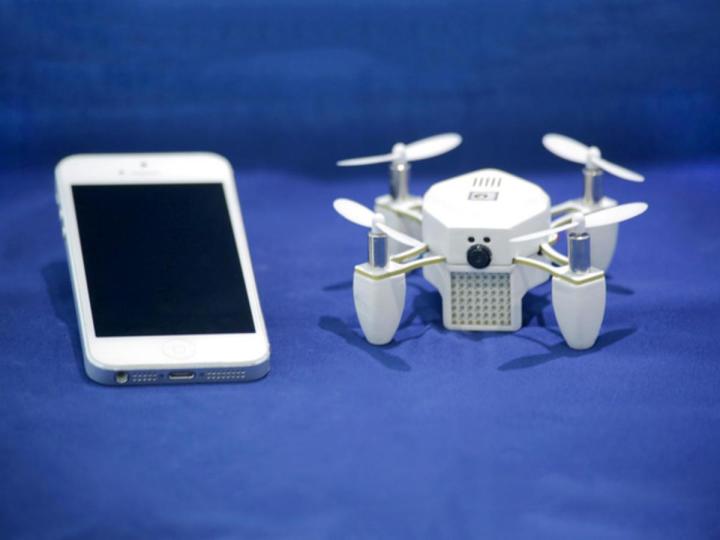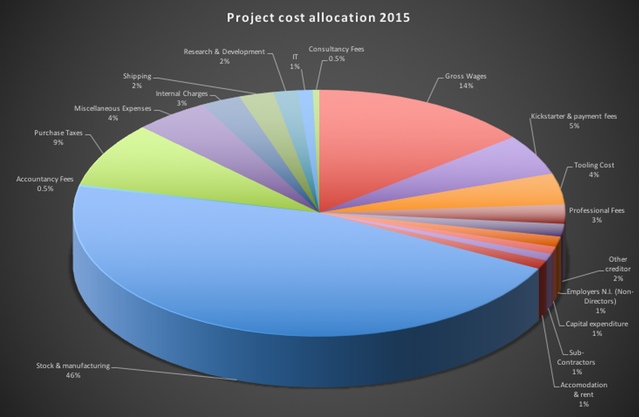
On Thursday, the company at the center of the failed venture – at £2.3 million ($3.5m) Europe’s most heavily backed Kickstarter project to date – posted an apology to Zano’s 12,000 backers on its Kickstarter page, at the same time explaining what’d gone wrong and how the funds were spent.
Torquing, the company behind the Wales-based startup that created the diminutive quadcopter, kicked off by apologizing for the recent lack of communication, adding that it was proceeding “with the best intentions.”
In a bid to be more transparent, the statement outlined how the money had been spent. The largest portion, 46 percent, went on “stock and manufacturing,” Torquing said, while 14 percent covered wages, 9 percent purchase taxes, and 5 percent Kickstarter fees. You can see the entire breakdown in the chart below.

“We strongly refute any allegations made that may suggest that the board of directors have misappropriated any funds,” the company also said in its message.
It went on to detail different areas that caused the greatest challenges for those behind the project, namely prototype amendments and rig testing, hardware expenditure that saw “significant expenditure” when engineers opted to use a lighter plastic to improve flight time, and product manufacturing.
Closing, Torquing offered “a sincere apology for the understandable disappointment felt by all of those who have supported the project.”
The statement makes no mention the possibility of returning any of the funds to the backers. One of those commenting on Torquing’s post suggests it sells the drone parts in its possession and shares the resulting income.
When it launched toward the end of 2014, the Zano project excited many with its promise of an ultra-portable, autonomous mini-drone with HD video capabilities. A minimum pledge of £139 ($210) promised backers an early version of the remotely controlled quadcopter, but only a few were ever delivered.
The project’s demise highlights the risk backers face with projects on crowdfunding sites like Kickstarter. In a statement to the BBC recently, New York-based Kickstarter said that, on the whole, inventors and creators using its service “have a remarkable track record, but there are no guarantees that a project will work out.”
Referencing instances where projects collapse, Kickstarter’s terms say: “The creator is solely responsible for fulfilling the promises made in their project. If they’re unable to satisfy the terms of this agreement, they may be subject to legal action by backers.”


